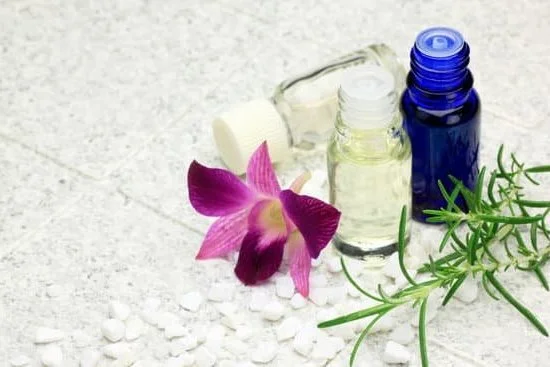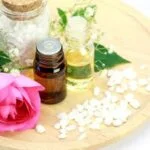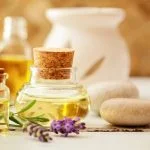Rosemary, with its distinct aroma and powerful properties, has long been treasured in the world of aromatherapy. This ancient herb not only adds a delightful fragrance to our surroundings but also offers an array of magical benefits for our mind, body, and spirit. In this article, we will delve into the wonders of rosemary in aromatherapy, exploring its rich history, scientific workings, and endless uses and benefits.
To truly appreciate the marvels of rosemary in aromatherapy, it is important to understand its origins and historical significance. This versatile herb has a fascinating background that dates back centuries. Across different cultures and civilizations, rosemary has been revered for various purposes – from promoting good health to enhancing spiritual rituals. By exploring its roots, we can gain a deeper appreciation for the power this herb holds in aromatherapy practices.
Beyond its captivating history lies the science behind rosemary essential oil’s effectiveness in aromatherapy. Understanding how this oil works can help us comprehend why it has become such a vital ingredient in countless therapeutic treatments. From stimulating the senses to triggering beneficial physiological responses within our bodies, rosemary essential oil boasts an impressive chemistry that contributes to its remarkable effects.
In the upcoming sections of this article, we will shine a spotlight on the top uses and benefits of rosemary in aromatherapy. We will uncover how it cultivates mental clarity and focus while soothing stress and anxiety. Additionally, we will explore its antimicrobial and anti-inflammatory properties that support holistic healing. Furthermore, we will discover how incorporating rosemary into skincare and haircare routines can elevate beauty rituals to new heights.
Join us as we embark on a journey into the world of rosemary in aromatherapy – a world filled with endless possibilities for revitalizing our senses while nurturing our overall well-being.
A Brief History of Rosemary
Rosemary has a long and fascinating history that dates back centuries. This fragrant herb has been used for various purposes throughout different cultures and civilizations. In this section, we will trace the origins of rosemary and explore its historical use in aromatherapy.
The use of rosemary can be traced as far back as ancient Greece and Rome. The Greeks believed that rosemary was a symbol of remembrance, love, and loyalty. They used it in various rituals, including weddings and funerals, to promote good fortune and ward off evil spirits. The Romans also highly valued rosemary for its medicinal properties. They believed that the herb could strengthen memory and concentration.
During the Middle Ages, rosemary became associated with protection against evil spirits. People would hang bundles of rosemary in their homes or wear it as a talisman to ward off negative energies. It was also believed to have cleansing properties, which is why it was often used in incense during religious ceremonies.
In addition to its spiritual significance, rosemary was also used for its therapeutic properties throughout history. It was commonly used as a natural remedy for digestive issues, headaches, and respiratory problems. Its invigorating scent made it a popular ingredient in perfumes and cosmetics.
Overall, the historical use of rosemary in aromatherapy showcases not only its pleasant fragrance but also its versatile benefits for physical and mental well-being. Its rich history demonstrates just how enduring this herb has been throughout time, making it an invaluable ingredient in modern-day aromatherapy practices.
Understanding the Science
Aromatherapy is a holistic healing practice that utilizes the power of essential oils to promote wellbeing and relaxation. One such essential oil that has gained significant popularity in aromatherapy is rosemary essential oil. But what exactly makes rosemary essential oil so potent and effective in this practice? In this section, we will explore the science behind how rosemary essential oil works in aromatherapy.
The Chemistry of Rosemary Essential Oil
Rosemary essential oil contains a variety of chemical compounds that contribute to its therapeutic effects. One of the key components is cineole, also known as eucalyptol. Cineole possesses anti-inflammatory and analgesic properties, making it ideal for relieving pain and reducing inflammation when used in aromatherapy. Another important compound found in rosemary essential oil is camphor, which has antimicrobial properties that can help combat infections.
Affecting the Brain and Nervous System
In aromatherapy, inhalation is the primary method of utilizing rosemary essential oil. When inhaled, the scent molecules of rosemary stimulate the olfactory system, which sends signals to the brain’s limbic system – the area responsible for emotions, memory, and behavior. This interaction leads to various physiological responses, including reduced stress levels, increased alertness, and improved cognitive function.
Studies have shown that inhaling rosemary essential oil can enhance mental clarity and focus. The aroma stimulates brain activity by increasing blood flow to certain areas associated with memory and cognitive performance. It can also improve mood by triggering the release of neurotransmitters like serotonin and dopamine.
The Power of Antioxidants
Another aspect that contributes to the effectiveness of rosemary essential oil in aromatherapy is its high antioxidant content. Antioxidants are known for their ability to neutralize free radicals – unstable molecules that can cause damage to cells through a process called oxidative stress. By reducing oxidative stress, rosemary essential oil can help protect the body against chronic diseases and promote overall health and wellbeing.
Understanding the science behind how rosemary essential oil works in aromatherapy allows us to fully appreciate its potential benefits. From its chemical composition to its effects on the brain and nervous system, rosemary essential oil offers a wide range of therapeutic properties that make it an invaluable tool in promoting holistic healing and wellness.
Unleashing the Power of Rosemary
Rosemary essential oil is widely regarded as a powerful and versatile essential oil in the practice of aromatherapy. Known for its distinct aroma and numerous wellness benefits, rosemary has been used for centuries for various purposes. In this section, we will explore the top uses and benefits of rosemary in aromatherapy.
One of the primary uses of rosemary essential oil in aromatherapy is to promote mental clarity and focus. This fragrant oil has a refreshing and invigorating scent that can help stimulate the mind, enhance concentration, and improve memory retention. Whether you are studying for an exam or preparing for a big presentation, diffusing rosemary essential oil can provide a much-needed boost to your cognitive abilities.
In addition to its mental benefits, rosemary also possesses stress-relieving properties. The calming aroma of rosemary essential oil can help alleviate feelings of anxiety and relieve tension within the body. By inhaling the fragrance or using it in massage oils or bath salts, you can create a soothing environment that promotes relaxation and emotional well-being. Furthermore, regular use of rosemary essential oil may also help regulate cortisol levels, which are often associated with stress.
Furthermore, rosemary essential oil has antimicrobial and anti-inflammatory properties that make it a valuable tool for holistic healing in aromatherapy. When applied topically or used in skincare products, rosemary can help combat acne-causing bacteria and reduce inflammation associated with skin conditions such as eczema or dermatitis. Additionally, these properties can also aid in relieving muscle soreness or joint pain when used in massage oils or bath soaks.
Overall, the power of rosemary in aromatherapy cannot be underestimated. From boosting mental clarity to soothing emotions and promoting physical well-being, this versatile essential oil offers limitless possibilities for improving overall health and wellness. Whether you choose to diffuse it, apply it topically, or incorporate it into your beauty routine, harnessing the benefits of rosemary in aromatherapy is a natural and holistic way to enhance your well-being.
Revitalizing Mind and Body
Rosemary and Cognitive Function
Rosemary has long been associated with improving cognitive function, particularly when it comes to boosting mental clarity and focus. Studies have shown that the aroma of rosemary essential oil can enhance memory and increase alertness. In a research study published in the International Journal of Neuroscience, participants who were exposed to the scent of rosemary showed improved cognitive performance and increased alertness compared to those who were not exposed to the aroma.
The Mechanism Behind Rosemary’s Effect on Mental Clarity
The key component in rosemary essential oil, called 1,8-cineole, is believed to play a significant role in its cognitive-enhancing effects. This compound has been found to have anti-inflammatory and antioxidant properties that may help protect brain cells from damage and improve overall brain function. Additionally, the aroma of rosemary has been shown to stimulate the production of certain neurotransmitters in the brain that are responsible for enhancing cognition.
Ways to Incorporate Rosemary for Mental Clarity
There are several ways you can utilize rosemary for its mental clarity-boosting benefits in aromatherapy. One popular method is through inhalation by using a diffuser or adding a few drops of rosemary essential oil onto a cloth or tissue and inhaling deeply. This can be especially beneficial during times when you need to concentrate on work or studying.
Another way to incorporate rosemary into your routine is by using it topically. You can dilute a few drops of rosemary essential oil with a carrier oil, such as coconut or jojoba oil, and massage it onto your temples or pulse points for an invigorating effect on your mind.
Additionally, incorporating rosemary into your diet can also provide cognitive benefits. Adding fresh or dried rosemary leaves to your meals or infusing them in water as a tea can help stimulate mental clarity and focus.
Soothing the Senses
Rosemary essential oil has long been recognized for its ability to soothe the senses and act as a powerful stress reliever in aromatherapy. The unique aroma of rosemary can help promote relaxation, reduce anxiety, and balance emotions. In this section, we will explore how rosemary can be used as an effective stress reliever in aromatherapy.
One of the main ways that rosemary essential oil helps alleviate stress is through its calming effects on the nervous system. When inhaled, the aroma of rosemary stimulates the olfactory system, which then sends signals to the brain’s limbic system – the part responsible for regulating emotions and mood. The active compounds in rosemary, such as camphor and cineole, interact with neurotransmitters in the brain to produce a calming effect and reduce feelings of stress.
In addition to its impact on the nervous system, rosemary also has adaptogenic properties, which means it helps the body respond more effectively to stressors. It can help regulate cortisol levels, which are often elevated during times of stress. By promoting balanced hormone levels, rosemary essential oil can help combat fatigue, improve energy levels, and promote overall well-being.
Utilizing rosemary as a stress reliever in aromatherapy can be done through various methods. One popular method is to add a few drops of rosemary essential oil to a diffuser or vaporizer and allow the aroma to fill the air. This creates a calming environment that promotes relaxation and reduces anxiety.
Rosemary can also be blended with carrier oils such as coconut or jojoba oil for use in massage or bath blends. The gentle massage combined with the soothing aroma of rosemary can provide deep relaxation and relief from stress.
Overall, utilizing rosemary as a stress reliever in aromatherapy offers a natural and holistic approach to managing daily stresses and promoting emotional well-being. Its unique properties make it an effective tool for achieving relaxation, clarity, and balance in both the mind and body.
| Benefits of Utilizing Rosemary as a Stress Reliever in Aromatherapy |
|---|
| – Reduces anxiety and promotes relaxation |
| – Balances emotions and improves mood |
| – Calms the nervous system and reduces stress hormones |
Holistic Healing
Rosemary, an herb that has been cherished for centuries, possesses remarkable antimicrobial and anti-inflammatory properties that make it a valuable tool in aromatherapy. These properties have been used throughout history for various healing purposes, making rosemary an essential ingredient in natural remedies.
One of the key benefits of rosemary in aromatherapy is its antimicrobial properties. The essential oil derived from rosemary contains compounds such as terpenes and flavonoids, which have powerful antimicrobial effects against several bacteria and fungi. These antimicrobial properties can help in preventing infections and promoting overall wellness. Rosemary can be used to purify the air in your home by diffusing the essential oil or added to cleaning products to create a natural disinfectant.
Additionally, rosemary is known for its potent anti-inflammatory properties. Inflammation is linked to various health issues such as arthritis, skin conditions, and digestive problems. Rosemary essential oil can help reduce inflammation and alleviate symptoms associated with these conditions. It can be applied topically in diluted form or added to carrier oils to effectively soothe inflamed skin or joints.
Elevating Beauty Rituals
Rosemary has long been revered for its ability to enhance beauty rituals, making it a popular ingredient in skincare and haircare products. Incorporating rosemary essential oil into your beauty routine can provide numerous benefits for your skin and hair.
Skincare is an important aspect of self-care, and rosemary can play a vital role in improving the health and appearance of your skin. The essential oil derived from rosemary has antimicrobial properties that can help prevent acne breakouts and reduce inflammation.
It also contains antioxidants that protect the skin from free radicals, which can cause premature aging and damage to the skin cells. Rosemary essential oil is often used in facial cleansers, toners, and moisturizers to promote clear, radiant skin.
When it comes to haircare, rosemary is a powerhouse ingredient that promotes healthy hair growth and helps combat common hair problems such as dandruff and hair loss. The stimulating properties of rosemary essential oil increase blood circulation to the scalp, which nourishes the hair follicles and encourages strong, thick hair growth.
It also has antifungal properties that help eliminate dandruff-causing fungus and soothe an itchy scalp. Rosemary essential oil can be added to shampoo or diluted with a carrier oil for a revitalizing scalp massage.
| Benefit | Skincare | Haircare |
|---|---|---|
| Antimicrobial | Effective against acne-causing bacteria | Helps eliminate dandruff-causing fungus |
| Antioxidant | Protects against free radicals and premature aging | Nourishes hair follicles for healthy growth |
| Anti-inflammatory | Reduces redness and inflammation | Soothes an itchy scalp |
| Stimulating | Promotes circulation and rejuvenates the skin | Encourages strong, thick hair growth |
Incorporating rosemary essential oil into your daily beauty routine can offer a holistic approach to skincare and haircare. Whether you choose to use it in commercial products or create your own DIY recipes, the benefits of rosemary in aromatherapy for beauty rituals are undeniable.
Tips and Tricks
Using rosemary essential oil in aromatherapy can greatly enhance the overall experience and provide maximum benefits. However, it is important to use this potent oil safely and effectively. Here are some tips and tricks for using rosemary essential oil in aromatherapy:
- Dilute properly: Rosemary essential oil is highly concentrated and should always be diluted before use. This can be done by adding a few drops of the essential oil to a carrier oil such as jojoba, almond, or coconut oil. The recommended dilution ratio is typically 2-3 drops of rosemary essential oil per teaspoon of carrier oil.
- Inhalation methods: One of the most common ways to enjoy the aroma of rosemary essential oil is through inhalation. This can be achieved by adding a few drops of the oil to a diffuser or by placing a few drops on a cotton ball or tissue and inhaling deeply. You can also add a few drops to a warm bath or shower to create an invigorating steam.
- Incorporate into massage: Rosemary essential oil is often used in massage therapy due to its beneficial properties for muscle relaxation and pain relief. When using it for massage, blend 5-6 drops of rosemary essential oil with your preferred carrier oil and apply it generously onto the skin. Remember to do a patch test first to check for any potential skin sensitivities.
- DIY blends: Get creative with rosemary essential oil by creating your own custom blends for various purposes. For example, you can mix it with lavender and peppermint essential oils for headache relief, or with citrus oils like lemon and grapefruit for an uplifting mood boost. Make sure to research proper blending ratios before creating your own blends.
- Safety precautions: As with any essential oil, there are certain safety precautions that should be followed when using rosemary essential oil. It is not recommended for use during pregnancy or by individuals with epilepsy. Always perform a patch test on a small area of skin before applying it topically, and if any irritation occurs, discontinue use.
By following these tips and tricks, you can make the most out of your rosemary essential oil in aromatherapy. Remember to always choose high-quality, pure essential oils from reputable sources for optimal results. With the right techniques and precautions in place, you can enjoy the countless benefits that rosemary has to offer in aromatherapy.
Conclusion
In conclusion, the use of rosemary in aromatherapy offers a wide range of benefits and endless possibilities. Its rich history and origins trace back to ancient times, where it was widely recognized for its therapeutic properties. Through understanding the science behind rosemary essential oil, we can truly grasp how it works to enhance our well-being.
One of the key benefits of rosemary in aromatherapy is its ability to boost mental clarity and focus. This fragrant herb has been shown to stimulate the brain and improve cognitive function. Whether you’re studying for an exam or need to stay focused at work, incorporating rosemary into your aromatherapy routine can provide that extra mental support.
Furthermore, rosemary serves as a powerful stress reliever by soothing the senses. The calming aroma helps to relax both the mind and body, promoting a sense of tranquility and peace. By incorporating rosemary into your daily self-care routine, you can create a serene atmosphere that promotes relaxation and reduces stress.
Additionally, rosemary’s antimicrobial and anti-inflammatory properties make it an excellent choice for holistic healing. It has been used for centuries as a natural remedy for various ailments, thanks to its ability to fight off bacteria and reduce inflammation in the body. From easing muscle pain to boosting immunity, rosemary offers a natural and effective way to promote overall health and well-being.
Moreover, integrating rosemary into skincare and haircare routines can elevate beauty rituals. With its antioxidant properties, rosemary assists in protecting the skin from environmental damage while promoting healthy hair growth. Its invigorating scent also adds a refreshing touch to any skincare or haircare regimen.
To fully embrace the endless possibilities of rosemary in aromatherapy, it is important to follow best practices when using rosemary essential oil. Diluting it properly with carrier oils and conducting patch tests before applying it directly on the skin are essential steps to ensure safe usage.
Frequently Asked Questions
How do you use rosemary in a room?
Rosemary can be used in a room in various ways to enhance the atmosphere and promote a pleasant scent. One popular method is using rosemary as a natural air freshener by infusing it in water and simmering it on the stove or using it in a diffuser.
The aromatic properties of rosemary help to eliminate unpleasant odors, creating a fresh and inviting environment. Additionally, dried rosemary can be tied into bundles and hung in various areas of the room, such as closets or near windows, to give off its captivating fragrance.
What is the spiritual meaning of rosemary?
In terms of its spiritual meaning, rosemary is often associated with remembrance and protection. It has a long history of being used for memory enhancement and mental clarity, making it symbolically connected to preserving memories and honoring loved ones who have passed away.
The aroma of rosemary is believed to stimulate the mind and enhance concentration, enabling individuals to connect more deeply with their inner self during meditation or spiritual practices. This herb is also considered to have protective qualities against negativity and evil energies.
What are the benefits of rosemary in the house?
There are several benefits of having rosemary in the house beyond its aromatic qualities. Rosemary plants are known for their ability to naturally purify the air by absorbing harmful toxins commonly found indoors while releasing oxygen as they photosynthesize. This enhances indoor air quality and helps create a healthier living environment for occupants.
Additionally, some studies suggest that inhaling rosemary essential oil or spending time around rosemary plants may have positive effects on mood by reducing stress levels and promoting relaxation. Furthermore, the presence of rosemary indoors can add an aesthetic touch with its vibrant green foliage, bringing nature’s beauty into one’s home décor.

Are you looking for a natural way to improve your health and wellbeing?
If so, aromatherapy may be the answer for you.





